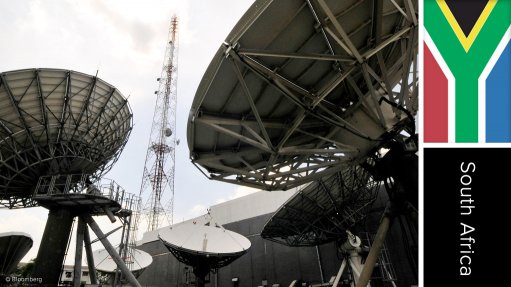
Name of the Project
Digital broadcasting migration project.
Location
South Africa.
Client
The Department of Communications (DoC) and Sentech.
Project Description
Digital terrestrial television (DTT) is the implementation of digital technology to provide more channels and/or better picture quality and sound using a conventional television antenna or aerial, instead of a satellite dish or cable connection.
In 2005, State-owned enterprise Sentech announced its plans to roll out DTT using digital video broadcasting terrestrial (DVB-T) technology, in time for the 2010 FIFA World Cup.
Initially, there will be two DVB-T transmitters for each location or site.
The first phase of the project involves upgrading the Sentech broadcast network and duplicating the current analogue network channels on a digital system.
Most of the 220 sites needed to broadcast DTT to 92% of South Africa's population are in place, but have to be upgraded to become fully digital. Once that process has been completed, DTT and analogue systems will run simultaneously (a dual-illumination process) until South Africa is ready to switch off analogue transmission. This decision will be made by government.
Consumers will require a set-top box (STB) to decode the signal, even for public broadcasting and free-to-air channels. The STBs are expected to be subsidised.
Once the migration to DTT is complete, the country will no longer have exclusive use of the frequencies.
Jobs to be Created
Not stated.
Value
The upgrade is expected to cost R4.3-billion.
Duration
According to an agreement with the International Telecommunications Union (ITU), the country had until 2015 to complete the migration.
Latest Developments
Advocate Wim Trengove told the Constitutional Court on February 21 that a decision on the amended STB policy was unnecessary, as it would have no legal binding effect.
Trengove, who is acting for Communications Minister Faith Muthambi, was quizzed by Chief Justice Mogoeng Mogoeng and other judges on the bench about his client’s decision to amend the Broadcast Digital Migration Policy in 2015, which included a clause in the Broadcast Digital Migration Policy stating that the subsidised STBs would not have the capability to decipher encrypted broadcast signals.
Following the Minister’s amendment in 2015, eTV brought an application to the High Court to review the Minister’s decision and argued that she did not have the power to do so because necessary consultations had not been undertaken. However, the eTV application was dismissed with costs.
“It will never have any effect and if it does, the Independent Communications Authority of South Africa (Icasa) and the Universal Service and Access Agency of South Africa (Usaasa) will have to consider the matter,” Trengrove said.
“eTV has no legal interest in the amendment but Icasa might . . . have a commercial interest in the implementation and it is not clear what the commercial interest is.”
Mogoeng asked Trengove about the rationality of the policy and whether there was room for it to be challenged. He said the policy merely provided guidance for the executives on the transition from analogue to digital TV and that it was not binding on anybody.
“Why should it be reviewed if it’s not binding. What is the point of reviewing a policy that may not have effect?” asked Trengove.
“Why not save Icasa and Usaasa from being influenced by a policy that may be irrational and not be up to them to challenge. Why leave me without guidance and policy?” asked Mogoeng.
Trengove said Icasa as a regulator was allowed to deem the policy unlawful.
The matter continues.
Key Contracts and Suppliers
None stated.
On Budget and on Time?
The process has been dogged by delays as broadcasters fight over whether STBs should be encrypted.
Contact Details for Project Information
DoC Mish Mokaleng, cell +27 82 469 3997.
Sentech, tel +27 11 691 7000.